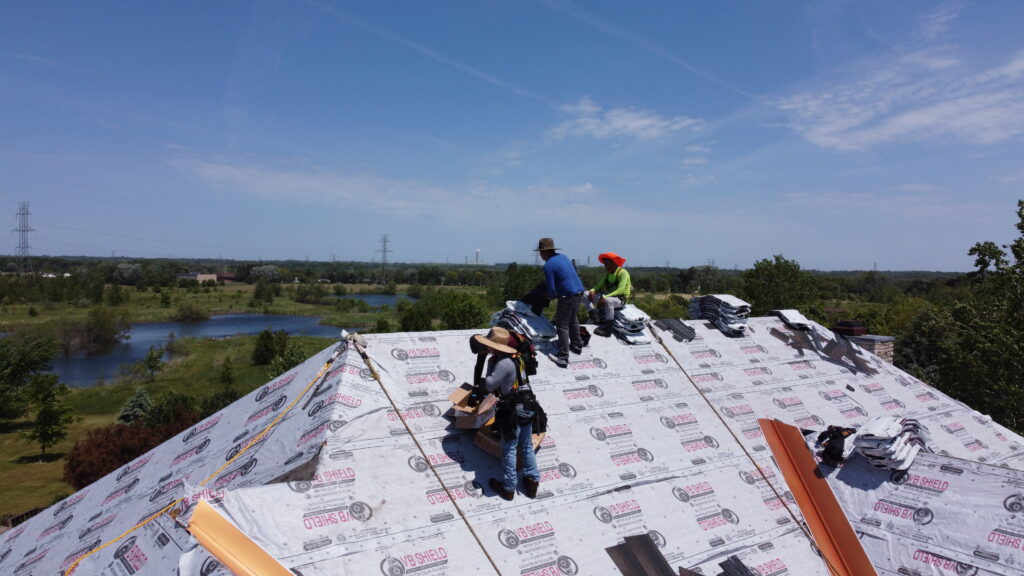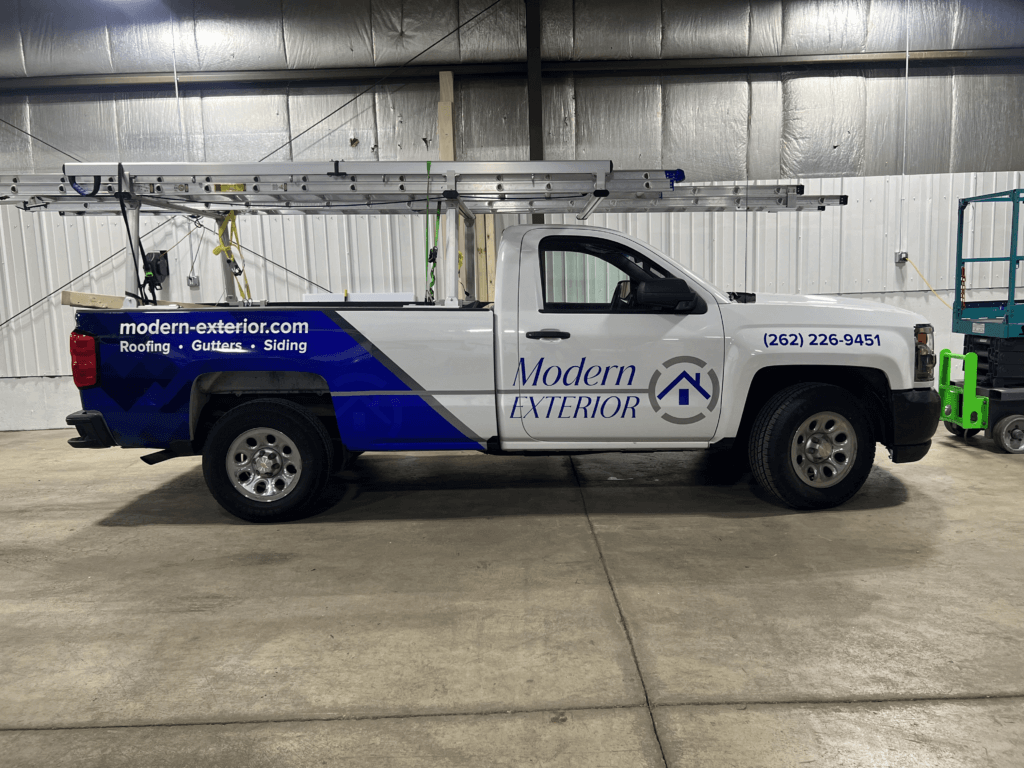
Choosing the right roofing contractor is of paramount importance when embarking on a roofing project. Properly vetting potential contractors by asking pertinent questions can provide valuable insights into their expertise, reliability, and professionalism. In this blog post, we will outline the top 10 questions that you should pose to your roofing contractor before finalizing your decision. Armed with satisfactory answers to these inquiries, you can confidently make an informed choice and enjoy a seamless and successful roofing experience.

Ensuring that your roofing contractor is properly licensed and carries adequate insurance is fundamental. Inquire about the specific types of insurance coverage they possess, such as worker's compensation, liability, and auto insurance. This verification shields you from potential liabilities and accidents that may occur during the project.
Understanding how the contractor handles unforeseen issues or mistakes during the roofing project is essential. A forthright contractor will acknowledge the possibility of unexpected challenges and articulate their approach to resolving them promptly and efficiently. Transparently addressing these concerns demonstrates their commitment to customer satisfaction and problem resolution.
Inquire about the range of materials offered by the contractor for roofing projects. A reputable contractor should provide a comprehensive selection, including various roofing materials like asphalt shingles, metal roofing, tiles, or slate. Familiarizing yourself with the available options enables you to make an educated decision based on your preferences, budget, and the climate of your region.
A contractor who maintains strong relationships with product representatives indicates a commitment to quality workmanship. Ask if they are acquainted with the representatives of the products they offer, including their names and contact information. Such familiarity ensures that the contractor is up-to-date with the latest industry trends, installation techniques, and adherence to manufacturer guidelines. This knowledge contributes to a more proficient and satisfactory installation process.
A reliable roofing contractor should stand behind their work by providing a guarantee or warranty. Inquire about the specifics of their guarantee or warranty policy, including its duration and coverage. Such information instills confidence in the quality of their workmanship and the materials used for your roofing project.
Requesting references from recent and local customers is an effective means of assessing a contractor's reputation and the quality of their work. A reputable contractor will readily supply you with a list of satisfied customers. Take the time to reach out to these references, and inquire about their experiences with the contractor, the outcome of the project, and their overall satisfaction. This due diligence allows you to gauge the contractor's reliability and competence.
Understanding the contractor's accepted payment methods and payment schedule is vital. Some contractors may require an upfront deposit, while others may offer flexible payment options. Clarifying these details in advance enables you to plan your budget accordingly and ensures a smooth and transparent transaction process.
While legal issues can arise in any business, it is essential to know if the contractor has been involved in any litigation or legal disputes. Inquiring about their history in this regard provides insights into their professionalism, integrity, and customer relations. Transparent communication regarding past legal matters builds trust and allows you to assess any potential risks associated with the contractor.
Roofing projects can be messy, and safeguarding your property during the installation process is crucial. Inquire about the contractor's procedures for protecting your property, including measures such as tarping flowers and landscaping, safety protocols, covering air conditioning units, and the protection and relocation of furniture. Understanding the contractor's commitment to preserving the integrity of your property demonstrates their professionalism and attention to detail.
Inquiring about the contractor's experience and tenure in the industry provides valuable insights into their expertise and stability. Established roofing contractors with a proven track record are more likely to deliver quality work and provide reliable services. Their longevity signifies that they have successfully navigated the challenges of the industry, built a strong reputation, and maintained customer satisfaction over time.

Experienced contractors possess a profound understanding of the specific building codes, regulations, and weather conditions that are unique to your area. They have encountered and overcome the various challenges that arise in your region, enabling them to recommend appropriate roofing solutions tailored to your location. Furthermore, their long-standing presence in the industry reflects their ability to adapt to evolving market dynamics and consistently satisfy their customers.
Furthermore, established roofing companies boast extensive networks of suppliers and industry connections. This advantage translates into improved access to top-notch materials, competitive pricing, and dependable product support. These resources allow experienced contractors to deliver superior quality and value to their clients.
While the number of years a contractor has been in business should not be the sole determining factor, it does hold significant weight when evaluating potential roofing professionals. A contractor with a proven track record demonstrates the experience, expertise, and resources required to handle your roofing project efficiently and effectively.

Choosing the right roofing contractor for your project is a crucial decision that can greatly impact the outcome and longevity of your roof. By asking the right questions and obtaining satisfactory answers, you can make an informed decision and ensure a successful and hassle-free roofing experience.
Throughout this blog post, we have highlighted the top 10 questions that you should ask your roofing contractor. These questions cover important aspects such as licensing and insurance, handling of issues and mistakes, available materials, knowledge of product representatives, guarantees or warranties, references, accepted payment methods, legal history, property protection procedures, and the contractor's experience in the industry.
By inquiring about their licensing and insurance, you can ensure that the contractor operates legally and has the necessary coverage to protect both you and their workers. Understanding how they handle issues or mistakes demonstrates their commitment to resolving problems and maintaining customer satisfaction.
Knowing the range of materials they offer allows you to choose the best option for your needs, preferences, and the local climate. Additionally, their familiarity with product representatives ensures they stay up-to-date with industry standards and guidelines.
The provision of a guarantee or warranty gives you peace of mind, knowing that the contractor stands behind their workmanship and the materials used. Requesting recent and local references allows you to verify the contractor's reputation and the quality of their previous projects.
Understanding their accepted payment methods and any legal history provides clarity and helps you plan your budget accordingly. Inquiring about property protection procedures ensures that your belongings and surrounding areas are safeguarded during the roofing process.
Finally, considering the contractor's experience in the industry allows you to gauge their stability, expertise, and ability to handle various challenges that may arise during the project.
In summary, conducting thorough research and asking these essential questions will empower you to make a well-informed decision when selecting a roofing contractor. Taking the time to gather all necessary information will significantly increase the chances of a successful and satisfactory roofing project.
Remember, your roof is a vital component of your home's structure, and entrusting its installation or repair to a reputable and reliable contractor is essential for its long-term durability and functionality.